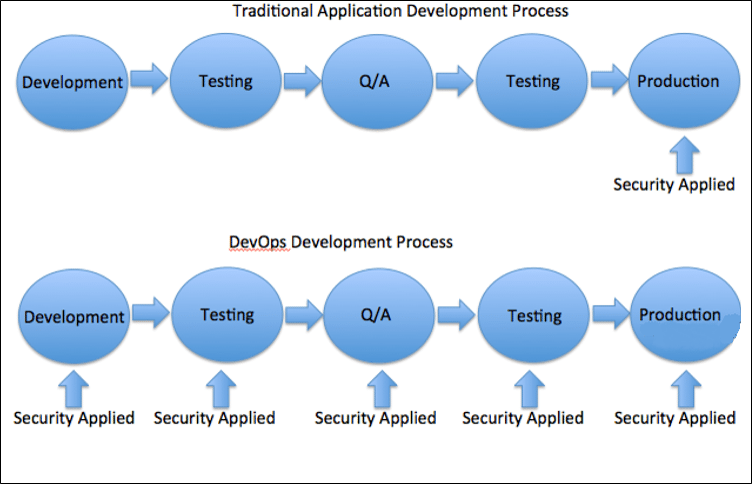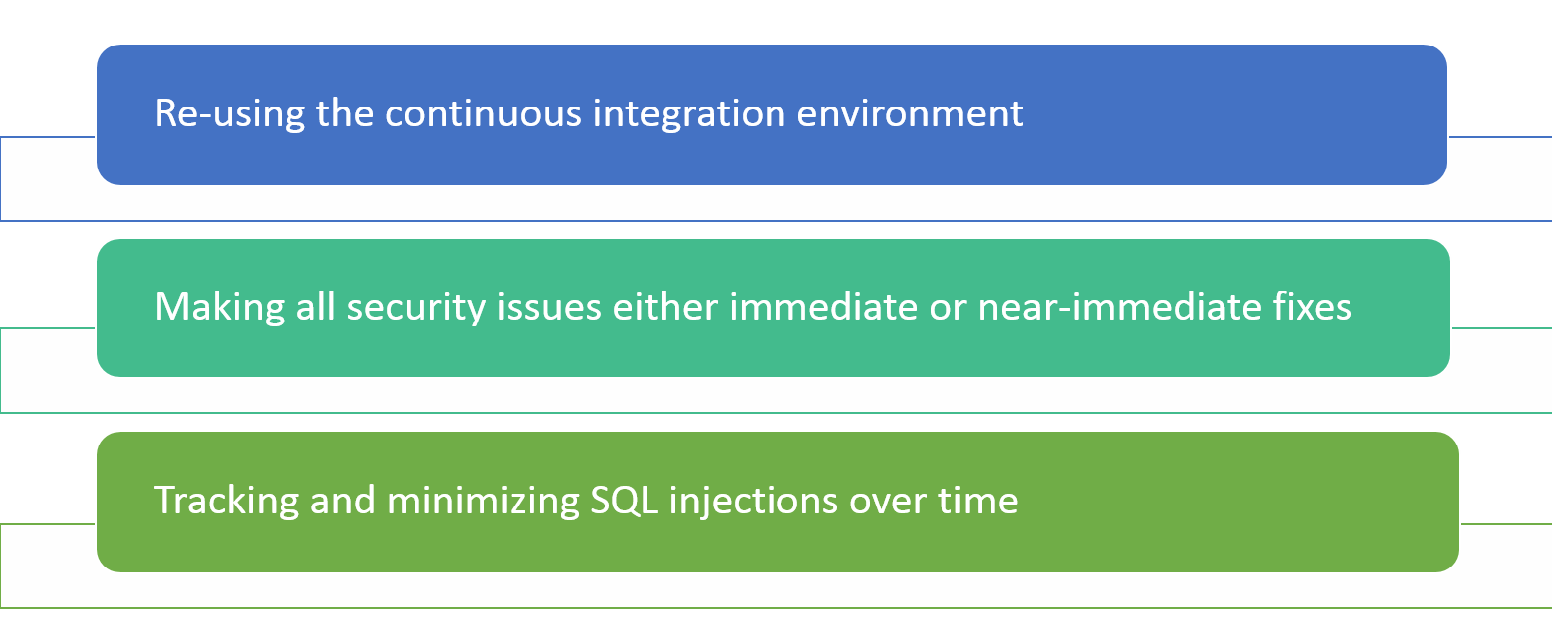DevOps Certification Training Course with Gen ...
- 189k Enrolled Learners
- Weekend/Weekday
- Live Class
In today’s competitive business environment, DevOps has emerged as a vital solution that helps organizations meet ever growing industry demands. The State of DevOps report helps us understand how the practices associated with DevOps effect IT and organizational performance. Let us examine the findings of the report to ascertain why DevOps matters and how DevOps can benefit your organization.
The 2016 State of DevOps report makes it plain and simple that companies that incorporate DevOps practices get more done, showing drastically different results than low performers. The report goes on to show that high-performing IT organizations have applied DevOps to get the following benefits:
These findings can be organized under the following categories:
DevOps enables continuous software delivery with less complex problems to fix and faster resolution of problems. It has certainly helped organizations such as Etsy, Netflix, Facebook, Amazon, Twitter and Google to revolutionize their performance levels and deploy at a never-before-seen rate! You can find out how different organizations have implemented DevOps to their benefit in this YouTube video.
Let us examine a DevOps use-case to infer why DevOps transforms organizational performance.
Facebook has one of the richest use-cases of DevOps in the world! Using the DevOps approach, Facebook deploys hundreds and thousands of code updates per day while delivering world-class stability, reliability and security. An early adopter of DevOps, Facebook seamlessly manages bi-weekly app updates that keep two billion users across the world hooked to the app.
By adopting DevOps principles such as continuous deployment, code ownership and incremental release, Facebook is able to get competitive differentiation among its peers. Facebook uses the following measures to achieve such success:
The effectiveness of the process rests on continuous code reviews that dictates that someone has to review and accept the code before the developer can commit it. This ensures better collaboration within and between teams and better perspective on the simpler or scalable path.
By deploying faster and more effectively in more stable operating environments, Facebook has been able to add value rather than just fix or maintain issues. This is why DevOps is highly valued by leading organizations such as Facebook.
Higher performance is not the only payoff in the DevOps culture. Organizations that adopt DevOps practices are known to have better information security. The 2016 State of DevOps Report clearly states that organizations that integrate information security objectives into daily work spend 50% less time re-mediating security issues.
This finding stands in stark contrast to the misconception that Security and DevOps do not work well together. In fact, organizations such as Etsy and Twitter have busted this myth with their successful integration of security and DevOps. Not only has this integration helped them cut down on costs related to fixes and remediation of security issues, but also helped them achieve high performance levels and meet business goals.
Before getting into how Etsy has integrated security into their DevOps culture, let us analyze why DevOps process is incomplete without introducing security in every step. In a non DevOps environment, security does not come into picture until the production stage, resulting in security slip ups in the absence of continuous assessment. DevOps has changed this way of functioning by making room for integration of security at every stage of the development process. Instead of waiting for a full release cycle to release a security fix, security engineers can combine the fixes at every stage of production, thereby up-hauling the security of the entire product! This is depicted in the diagram below.

Image Source: Network World Intelligence
Let us now dig deeper into Etsy’s DevOpsSec use case.
DevOps Tutorial for Beginners | Learn DevOps in 7 Hours – Full Course | DevOps Training | Edureka
This Edureka DevOps Tutorial for Beginners will help you learn DevOps concepts and DevOps tools with examples and demos. You will understand how a DevOps pipeline can be imagined for existing infrastructure.
Etsy, a handmade and vintage products e-commerce website is one of the forerunners in the DevOps movement. Etsy is among the elite organizations in the world that have integrated security into their DevOps culture to create DevOpsSec. By removing barriers between security, developers and Ops, security is better integrated into the DevOps approach at Etsy; not as an afterthought for an isolated department to look into, but rather integrated at all stages of a development project and beyond. This includes:

Etsy follows the principle of “every engineer can push to prod at any time,” principle. Because a classical security approach does not work well in such a continuous deployment environment, Etsy makes security related data available to everyone and does away with ‘out of cycle’ patches, thereby enabling security engineers to push fixes directly to production. This measure has helped Etsy to break down barriers between Dev, Ops and Security teams, and get early visibility, input and deeper insight into security issues.
Learning from DevOps and moving to a DevOpsSec mindset is the key point to be noted in this case. Data-driven security decisions, continuous assessment of the security program and integrating security into automatic build process is how Etsy has created a DevOps success story.
Consider this scenario; in an organization that does not apply the DevOps methodology, the development team writes code and develops a product which is then sent to the testing team that verifies if the code meets the requirements. The operations team steps in to run the product only after this process is complete. DevOps philosophy was created to break these silos that teams operate in and affect better collaboration and performance.
The culture shift that DevOps brings about in organizations is substantial and since culture is a key factor responsible for a company’s performance, application of the DevOps philosophy provides specific results. In organizations that observe the DevOps culture, the development and operations teams work outside silos, releasing products faster, thereby increasing operational efficiency. The operations team makes this possible by giving the developers constant feedback about the code and troubleshooting problems with the end-user experience in mind.
This continuous learning and delivery practice allows cross-functional teams collaborates one team with one goal thus facilitating higher performance levels. The improved organizational culture and enhanced employee engagement can not only help organizations in retaining great talent but also in recruitment. In fact, the 2016 State of DevOps report states that employees in high-performing organizations are more than twice as likely to recommend their organization to a friend as a great place to work.
Infosys is said to have achieved a 5-7% effort reduction across projects, using collaborative life cycle management solutions and DevOps methods. The organization which manages 4,000 application development, maintenance, and infrastructure management projects per year was facing significant challenges resulting from distributed teams using manual processes. There was a necessity to execute projects efficiently to improve quality, reduce defects and minimize delays. This is why DevOps was applied with the IBM CLM Suite to produce the desired results.
These are just a few ways in which organizations can benefit from adopting the DevOps culture. The 2016 State of DevOps Report shows that high-performing organizations are widening their lead against lower-performing organizations. This can be attributed to the increased productivity and creativity of highly-engaged employees which helps them provide better experiences to customers.
Organizations can achieve great business results by reinvesting the human time, creativity, and energy saved by reducing rework and downtime through DevOps. Herein lies the real ROI, and the reason why DevOps is being increasingly adopted – the competitive advantage that organizations get by investing in a philosophy that positively affects bottom-line results! If you want to develop your DevOps skills in a thoughtful, structured manner and get certified as a DevOps Engineer, we would be glad to help. Once you complete the DevOps Training Course with Gen AI, we promise that you will be able to handle a variety of DevOps roles in the industry.
Because of the enormous demand for DevOps experts, this exciting venture could be exactly what you’re seeking if you’re in search of a career that’s both demanding and rewarding. No matter whether you’ve worked in DevOps or are new to the field, the DevOps Post Graduate Program is precisely the thing you need to learn the methods to be successful. From the basic to the most advanced methods, we cover everything.
Ready to take your career to the next level in the world of DevOps? Join our comprehensive DevOps Engineer Course today and become a master of automation, continuous integration, and continuous delivery. Unlock the skills and knowledge needed to excel in this high-demand field. Don’t miss out on this opportunity to transform your career. Enroll now and embark on your journey to becoming a DevOps expert!”
Got a question for us? Please mention it in the comments section and we will get back to you.
Related Queries
 Thank you for registering Join Edureka Meetup community for 100+ Free Webinars each month JOIN MEETUP GROUP
Thank you for registering Join Edureka Meetup community for 100+ Free Webinars each month JOIN MEETUP GROUPedureka.co
Very nice article about DevOps .with fulfledge explanation.